Transmediale, the great worldwide game
Published 2 February 2015 by Ewen Chardronnet
It is one of the largest European gatherings around the art, media and techno-hacker culture. From January the 28th until February the 1st, the Berlin Transmediale reflected on the “Capture All” theme during conferences, performances and heated discussions.
Berlin, special envoy (text and photos)
The Transmediale is like a large convention where the community of media studies, hackers, labs, digital arts and electronic music gathers in the imposing Haus der Kulturen der Welt (HKW, world cultural centre). Artists, academics, researchers, producers from Europe and around the world meet during five days in conferences, presentations, exhibitions and rendezvous at the restaurant, bars, or outings in legendary nightclubs such as the Berghain and the Yaam.
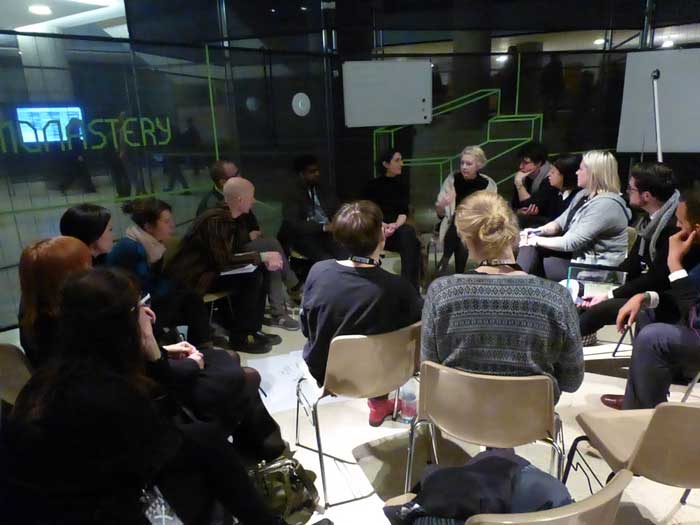
Big data and me and me and me
The theme chosen this year by the festival relates to current events. “Capture All” addresses the question of the meaning to give to a culture increasingly driven by the accumulation and sale of data, the big data, the absorption of our personal data, general surveillance and the fear of an artificial intelligence that would become incontrollable. How does one retain an individual autonomy in an increasingly inclusive cybernetic society?
The Snowden generation rendezvous
Transmediale is the rendezvous of the Snowden generation, and with the current events, conversation flows. We must point out that we are in Merkel’s Germany and developments around the coming to power of Syriza in Greece and the large protest march of Podemos in Madrid on January the 31st call for attention. One mentions the nomination of the Greek Finance minister, Yanis Varoufakis, from the modelling of the online game economy and also an expert in game theory, central subject of the different conferences of this 2015 Transmediale.
The festival incidentally took off with an opening conference “All watched over by algorithms”, gathering the Italian philosopher Matteo Pasquinelli, the Belgian legal expert Antoinette Rouvroy and the Belarussian essay writer Evgeny Morozov, author of the very influent To Save Everything, Click Here, the folly of technological solutionism (2013). The issue of world governance by algorithms is raised and criticised to a great extent, but the panel takes a very political turn throughout discussions on the algorithmic management of security, finance, and climate change.
“Oh, I love it when conferences take the form of a political party congress” says Pasquinelli with a smile, obviously very enthusiastic about the arrival in power of a post-operaismo left wing party in Greece. And it is true that Morozov and Pasquinelli go with the postulate of the Accelerate Manifesto, largely discussed over the past months in media studies. The authors criticize the folklore of a certain backward-looking left wing and call for real control over the cybernetic society by an enlightened movement at the left of the left. This movement would particularly highlight the Cybersyn project of the Allende government in the seventies in Chile or the efforts of Tsipras and his government in Greece today.
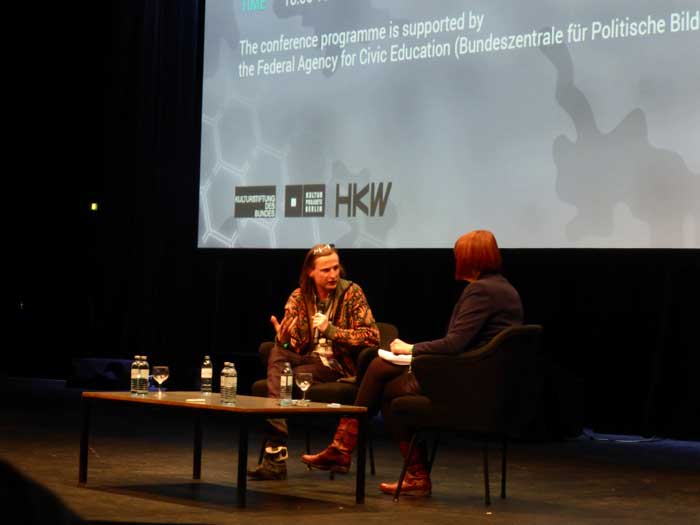
McKenzie Wark, who gave the closing conference, and author of A Hacker Manifesto, Gamer Theory and the upcoming Molecular Red, Theory for the Anthropocene, is also close to these considerations. “All I want is full communism”, he says with the situationist humour that characterizes him. He puts into context the criticism of the cyber-society within the context of the theory of systems, relying on games such as SimEarth (The Living Planet), a game of planet management “where you are bound to lose” according to Wark, insofar as the starting paradigm is biased. He replaces it in the context of the anthropocentrism of the idea of the anthropocene, a geological era that marks the exit of the Holocene (the Holocene started at the end of the ice age and the beginning of human settlement), an era largely studied during the last two years in this same building of the HKW. The global working group on the anthropocene recently declared that this era had started with the explosion of the first atomic bomb in New Mexico in 1945.
Wark is thus interested in this “All play” vision of the planet where the paradigms of the game are more and more involved in the neo-liberal development. He seeks answers and anticipations amongst somewhat forgotten philosophers of the twentieth century: Joseph Needham, the sinologist biologist who was the first director of the natural science department of the new Unesco after the Second World War; John Desmond Bernal, the English communist physician who led the world peace council after Frédéric Joliot-Curie and during the hardest years of the cold war or still Alexandre Bogdanov, one of leaders of the Bolchevist revolution, leader of the Proletkult, the revolutionary section of the “left wing artists” and avant-garde in 1918. Bogdanov will lay the ground for tectology, a discipline that wanted to unify physical, biological and social sciences and look for the corresponding organisation systems. This theory announces the theory of systems and a “left wing” cybernetic approach.
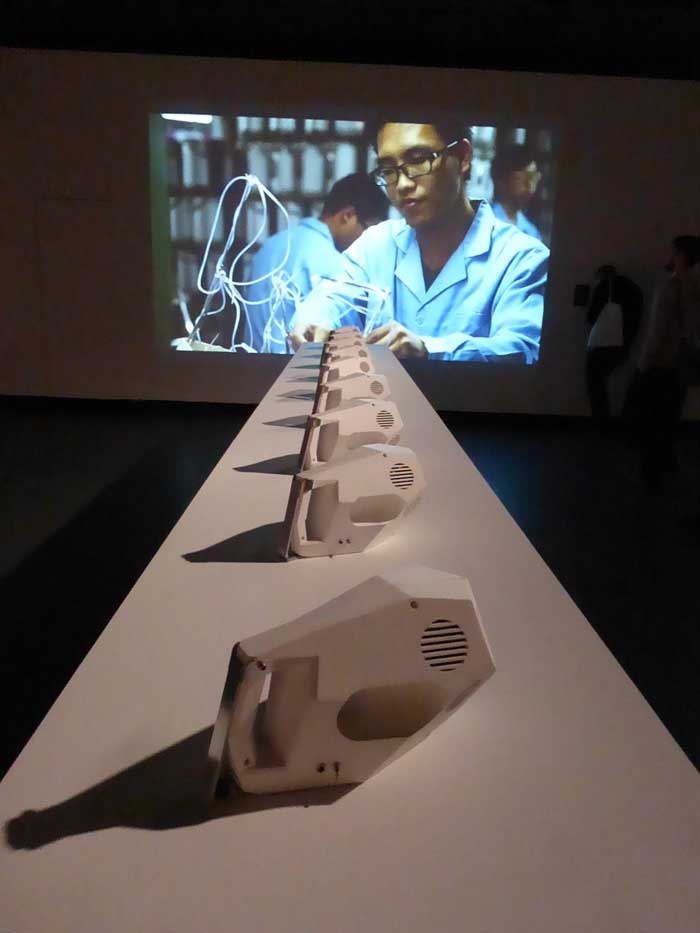
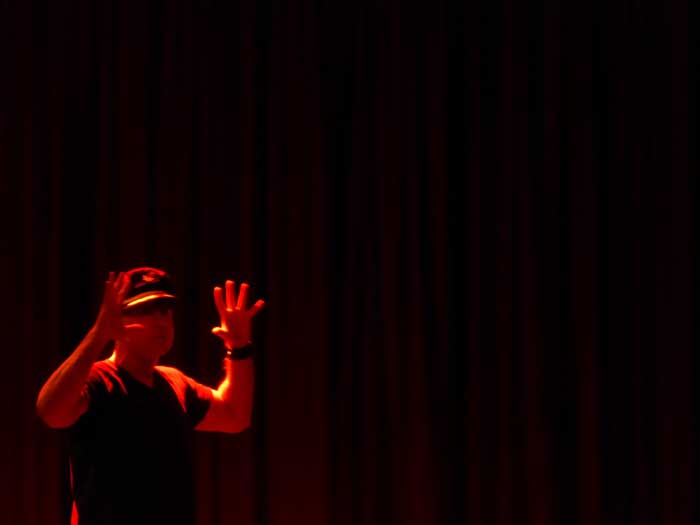
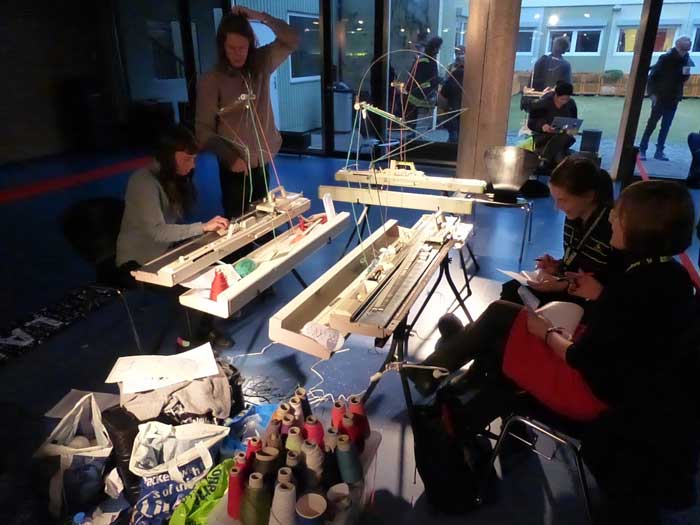
Self-quantification, from under-surveillance to auto-surveillance
Between these two highlights, the festival will have explored the subject in all its aspects. Special mention should be made of the conference “All play and no work” that analysed the great wave of “self-quantification”, the management of your health and well-being data, the auto-surveillance of your nutrition and calorie data, of your physical activity. Analysts Jennifer Whitson, Mark Butler and Paolo Ruffino underlined the ambiguity of the contemporary digital renewal of well-being management. A turning point had already begun in the post-Fordist society in the 1980s, but was renewed and promoted from the 1990s by leading figures such as Steve Mann, father of wearable computing, sousveillance, the Google Glass type glasses, and DIY life loggers of today. The contemporary situation is assessed through multiple examples, from applications such as NikeFuel to BITalino DIY communities that offer health auto-surveillance kits for hackers and makers. The issue of impartiality against subjectivity in a “health dictatorship” is raised here.
Man as a laboratory mouse
Other highlight with the first of the World Brain transmedia project from the French Stéphane Degoutin and Gwenola Wagon, with a projection of an essay-film returning to the demurgic fantasy of the worldwide brain that nourished a large part of the pro-tech ideology since the start of this century. The film covers the Internet planet, the linking of the whole world by installing fibre optic cables under the oceans and the progressive set-up of data centres, to the fantasy of connected brains, Kevin Warwick’s experimentations for research on guinea-pigs of the animal kind.
“World Brain” from Stéphane Degoutin and Gwenola Wagon (extract), 2015:
Is man becoming a mouse in the global laboratory? This is the question the artists ask us, as well as the question of the responsibility of autonomous DIY aficionados in a comic-fictional part alluding to the hippie culture such as Chris Marker films. The Whole Earth Catalog of the 1960s certainly had a major influence on the maker world over the past few years, through its stated objective to make technology available to autonomous communities. But what should one think of its founder, Stewart Brand, today converted to nuclear power, geo-engineering, transgenic issues and cloning?
The heated debate has only started: will makers (blinded or not) develop communities of communities? Will we go towards cybernetic planning and a socialist “tectological” renewal?
A few projects of the Transmediale to come, in minute detail
